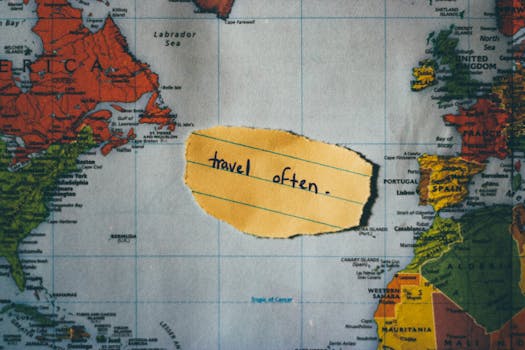
Cultural Fusion: Embracing Diversity in European Lifestyles by 2025
Cultural fusion, European culture, diversity, and lifestyle are becoming increasingly intertwined in modern Europe. As the continent continues to evolve, embracing diversity has become a cornerstone of European lifestyles. By 2025, cultural fusion is expected to play a significant role in shaping the future of Europe.
Introduction to Cultural Fusion
Cultural fusion refers to the blending of different cultural practices, traditions, and values to create a unique and dynamic lifestyle. In Europe, cultural fusion is manifesting in various ways, from food and music to art and architecture. As people from diverse backgrounds come together, they bring with them their customs, beliefs, and experiences, enriching the cultural landscape of Europe.
Benefits of Cultural Fusion
The benefits of cultural fusion in European lifestyles are numerous. It promotes cross-cultural understanding, fosters creativity and innovation, and enhances the overall quality of life. By embracing diversity, Europeans can learn from each other’s strengths and weaknesses, leading to a more harmonious and prosperous society.
Challenges of Cultural Fusion
However, cultural fusion also presents challenges, such as communication barriers, cultural differences, and social integration. To overcome these challenges, Europeans must be willing to adapt, be open-minded, and embrace the diversity that surrounds them.
Conclusion
In conclusion, cultural fusion is transforming European lifestyles, and by 2025, it is expected to have a profound impact on the continent. As Europeans continue to embrace diversity, they will create a unique and vibrant cultural landscape that is rich in traditions, customs, and values. By celebrating their differences and promoting cross-cultural understanding, Europeans can build a brighter future for themselves and future generations.
Embracing Cultural Fusion in European Cities
European cities are at the forefront of cultural fusion, with many cities boasting a diverse range of cultures, cuisines, and traditions. From the streets of London to the canals of Amsterdam, cultural fusion is alive and thriving. By exploring these cities, visitors can experience the richness of European culture and discover the many benefits of cultural fusion.
Cultural Fusion in European Food
Food is an integral part of cultural fusion in Europe, with many dishes reflecting the diverse culinary traditions of the continent. From Italian pasta to Indian curries, European food is a melting pot of flavors, spices, and ingredients. By embracing cultural fusion in food, Europeans can enjoy a wide range of culinary delights and experience the richness of European cuisine.
Cultural Fusion in European Art and Architecture
European art and architecture are also being shaped by cultural fusion, with many artists and architects drawing inspiration from diverse cultural traditions. From the works of Picasso to the designs of Gaudí, cultural fusion is evident in the many museums, galleries, and landmarks that dot the European landscape.
Cultural Fusion in European Music and Dance
Music and dance are also being influenced by cultural fusion in Europe, with many genres and styles reflecting the diverse cultural traditions of the continent. From flamenco to salsa, European music and dance are a vibrant reflection of the cultural fusion that is taking place.
Cultural Fusion and Education
Education is playing a vital role in promoting cultural fusion in Europe, with many schools and universities incorporating diverse cultural perspectives into their curricula. By learning about different cultures and traditions, students can develop a deeper understanding of the complexities of European society and appreciate the many benefits of cultural fusion.
Cultural Fusion and Business
Business is also being shaped by cultural fusion in Europe, with many companies recognizing the value of diversity and inclusion in the workplace. By embracing cultural fusion, businesses can tap into the creativity, innovation, and talent that diverse cultures bring, leading to increased competitiveness and success.
Cultural Fusion and Tourism
Tourism is another area where cultural fusion is having a significant impact, with many travelers seeking out diverse cultural experiences and traditions. By promoting cultural fusion, European cities and countries can attract more tourists and showcase the richness and diversity of European culture.
Conclusion
In conclusion, cultural fusion is transforming European lifestyles, and by 2025, it is expected to have a profound impact on the continent. As Europeans continue to embrace diversity, they will create a unique and vibrant cultural landscape that is rich in traditions, customs, and values. By celebrating their differences and promoting cross-cultural understanding, Europeans can build a brighter future for themselves and future generations.
The Future of Cultural Fusion in Europe
The future of cultural fusion in Europe looks bright, with many initiatives and programs aimed at promoting diversity and inclusion. As the continent continues to evolve, cultural fusion will play an increasingly important role in shaping the future of Europe.
Cultural Fusion and Technology
Technology is also playing a role in promoting cultural fusion in Europe, with many digital platforms and social media channels providing opportunities for people to connect and share their cultural experiences. By leveraging technology, Europeans can build bridges between different cultures and foster greater understanding and appreciation of diversity.
Cultural Fusion and Sustainability
Sustainability is another area where cultural fusion is having an impact, with many Europeans recognizing the importance of preserving cultural heritage and traditional practices. By embracing cultural fusion, Europeans can promote sustainable development and preserve the unique cultural landscape of the continent.
Conclusion
In conclusion, cultural fusion is a powerful force that is transforming European lifestyles and shaping the future of the continent. By embracing diversity and promoting cross-cultural understanding, Europeans can build a brighter future for themselves and future generations.



